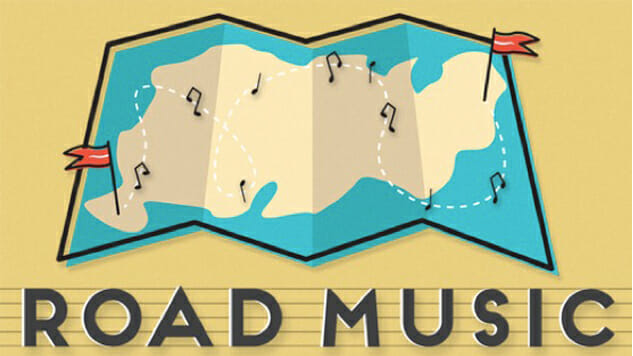Road Music, Chapter Twelve: Nashville, Tennessee

For this series, we’ll be following Paste’s own Curmudgeon, Geoffrey Himes, as he sets out on a massive road trip across the South, exploring musical landmarks, traditions and history along the way. Twelfth stop: Nashville, TN
On this trip, I’ve visited five Southern cities—Austin, Houston, New Orleans, Memphis and Nashville—with rich musical histories and lively contemporary scenes. But what separates Nashville from those other four towns is an actual music industry that can turn that art into money. The Tennessee capital has so many record companies, recording studios, TV studios, publishing firms, booking agencies, management companies and radio promoters concentrated in one small area that it’s just easier to find work and make deals.
It’s true, sometimes that emphasis on making money supplants artistic aims with embarrassing results, but more often, the availability of paying work allows musicians and songwriters to support themselves with day jobs that involve music while working on their own art at night. There’s a reason that Texans such as Guy Clark, Rodney Crowell and Steve Earle moved to Nashville. There’s a reason that rockers such as Dan Auerbach and Jack White did so, too.
One example of Nashville’s ability to foster a music industry is Music City Roots, a long-running radio show that might have bit the dust in a less commercially savvy town. Last Wednesday I attended the show at the Factory in Franklin, an outer suburb a half hour south of Nashville. The Factory is a sprawling campus on the National Register of Historic Places. The low-slung brick buildings housed manufacturing from 1929-1996, when they were renovated for shops, offices and a large theater where the show takes place. Inside the theater, Puckett’s Grocery & Restaurant serves Southern cooking.
As he does every week, Jim Lauderdale kicked off the show with one of his own songs. This time it was “If I Were You,” a song as solidly constructed as his hits for George Strait and as winningly twangy as his work with Ralph Stanley and Buddy Miller. Wearing a black cowboy suit with his salt-and-pepper hair swept back like a 19th-century Southern senator’s, Lauderdale was just as entertaining when he put down his guitar and began cracking corny jokes with the easygoing charm he brings to hosting the Americana Music Awards at the Ryman Auditorium each fall.

Jim Lauderdale (photo by Geoffrey Himes)
The first two acts—The Silences, a young indie-rock band from Ireland, and Fox & Bones, an Oregon folk duo—were underwhelming due to their weak material. But the evening’s third act, Beth Bombara from St. Louis, was quite impressive. The singer-songwriter led a folk-rock quintet that leant a propulsive thump to her catchy choruses about crumbling love on “I Tried (Too Late)” and “When I Woke.”
She also delivered the convincing romantic ballad, “Sweet Time,” dedicated to her co-writer, bassist and boyfriend Kit Hamon, and a brooding version of Bob Dylan’s “Blind Willie McTell.” Although Bomara seemed a bit nervous to be singing to a quietly listening audience, these songs from her new album, Map & No Direction deserve the attention.
-

-

-

-

-

-

-

-

-

-

-

-

-

-

-

-

-

-

-

-

-

-

-

-

-

-

-

-

-

-

-

-

-

-

-

-

-

-

-

-










































